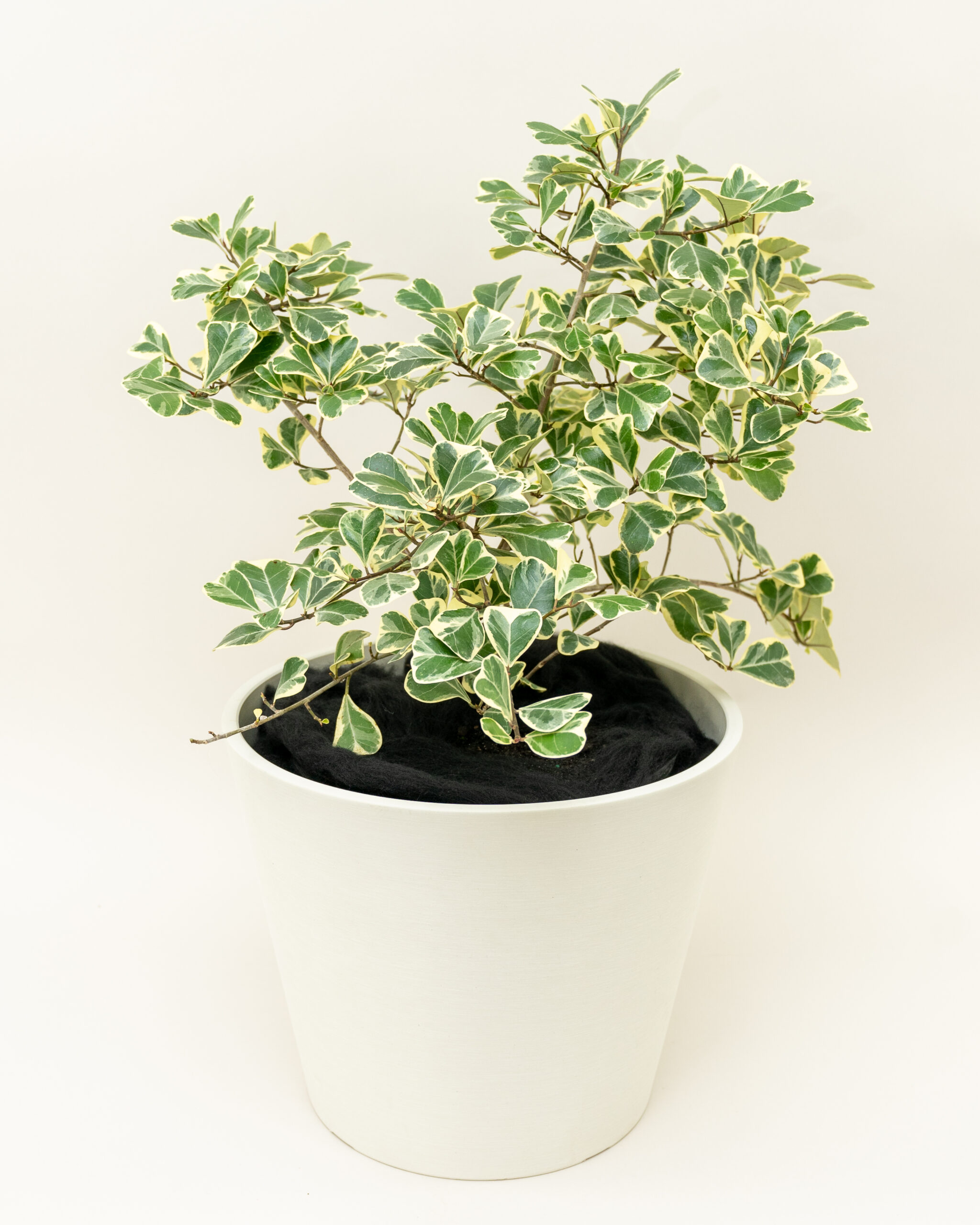Description
The Funkiest Fig for every Ficus AficionadoFicus Triangularis Variegata is a cultivar of the Ficus Triangularis, a species of fig tree that is native to tropical regions of Southeast Asia. This particular cultivar is known for its variegated leaves that are shades of green, cream, and pink. The history of the Ficus Triangularis Variegata is not well-documented, but it is believed to have been first discovered in Southeast Asia, where it is still commonly found in the wild today.Over time, the Ficus Triangularis Variegata became popular among horticulturists and plant collectors, who appreciated its unique and attractive appearance. The plant was propagated through cuttings and brought to other parts of the world, where it became a sought-after addition to indoor plant collections.Today, the Ficus Triangularis Variegata is grown commercially in many countries around the world, including the United States, where it is widely available from nurseries and plant shops. Its popularity continues to grow as more people discover the beauty and unique characteristics of this striking plant.Caring for your Variegated Triangle FigFicus Triangularis Variegata is a unique and beautiful plant that requires specific care to thrive. If you want to add a Ficus Triangularis Variegata to your indoor plant collection, here are some tips for caring for it.LightThe Ficus Triangularis Variegata prefers moderate to bright indirect light. Direct sunlight can scorch its leaves and cause damage to the plant. Place your plant in a location where it can receive bright light for several hours a day, but is shaded during the hottest parts of the day. If you notice that the leaves are turning yellow or brown, it may be an indication that the plant is getting too much direct sunlight. Move it to a location that receives less light or use a sheer curtain to filter the light.WaterThe Ficus Triangularis Variegata requires consistent moisture but does not like to be overwatered. Water the plant thoroughly when the top inch of soil feels dry to the touch. Be sure to allow excess water to drain away from the pot, as standing water can cause root rot. It is important not to let the plant sit in water for an extended period. During the winter months, when the plant is not actively growing, it may require less frequent watering.HumidityThe Ficus Triangularis Variegata prefers a humid environment. Place a tray of water near the plant or use a humidifier to increase humidity levels around the plant. Another option is to place the plant on a bed of pebbles that are partially submerged in water. This creates a humid microclimate around the plant.FertilizerThe Ficus Triangularis Variegata benefits from regular fertilization during the growing season. Use a balanced fertilizer that is high in phosphorus to promote healthy growth and leaf color. Apply fertilizer every two to four weeks during the growing season, following the package instructions. Avoid fertilizing the plant during the winter months when it is not actively growing.PruningPruning is an essential part of caring for the Ficus Triangularis Variegata. Remove any yellow or damaged leaves as soon as you notice them. This helps to prevent the spread of disease and promotes healthy growth. You can also prune the plant to control its size and shape. Use sharp, clean shears to make a clean cut, and be sure not to remove more than 1/3 of the plant at a time.PropagationThe Ficus Triangularis Variegata can be propagated by stem cuttings. To propagate, take a stem cutting that includes at least two nodes and a few leaves. Dip the cut end of the stem in rooting hormone and plant it in a well-draining potting mix. Keep the soil consistently moist and place the pot in a bright, indirect light. It may take several weeks for the cutting to root





